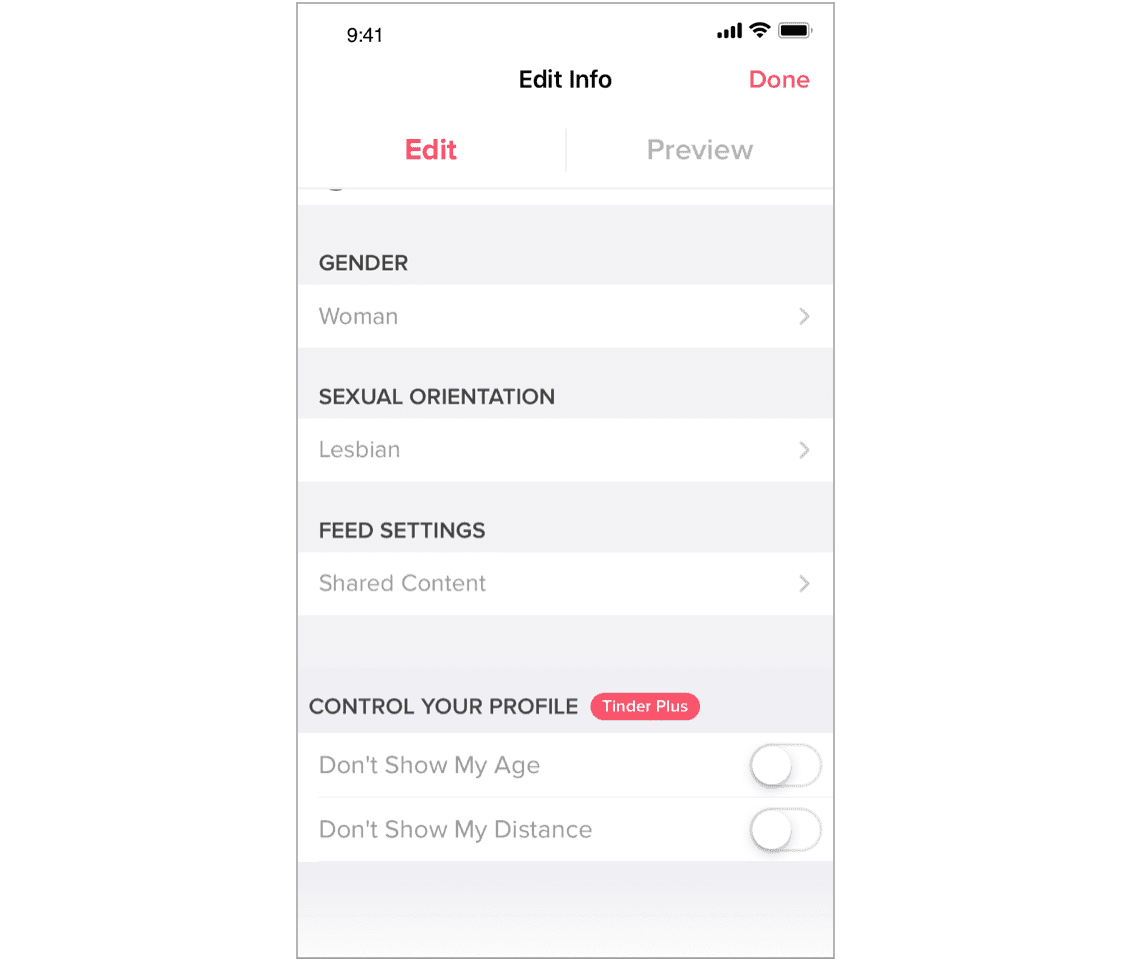In the intriguing world of online dating, the question arises: do people use their real name on Tinder? With its reputation as a platform that encourages connections and potential romantic interests, it’s no wonder many ponder whether individuals are truly disclosing their true identities. This article explores this thought-provoking topic, delving into the reasons behind the choices people make when it comes to disclosing their names on the popular dating app.
Why Do People Use Their Real Names on Tinder?
Authenticity
Using their real names on Tinder allows people to present their authentic selves to potential matches. By using their real names, users can portray a genuine image and build trust with others. It gives a sense of transparency and honesty, which can be appealing to those looking for a genuine connection on the dating platform. When someone uses their real name, it suggests that they are serious about finding a meaningful relationship and are willing to be open and vulnerable with their matches.
Safety
Using real names on Tinder can also promote a sense of safety for both parties. When users use their real names, it becomes easier to verify their identity and ensure that they are who they claim to be. This can help in preventing catfishing or any other kind of deception on the platform. Additionally, using real names makes it easier for users to search and gather information on potential matches, which can help to confirm their background and credibility. Overall, using real names on Tinder can foster a safer and more secure dating experience.
Why Do Some People Use Fake Names on Tinder?
Privacy Concerns
One of the key reasons why people opt for using fake names on Tinder is due to privacy concerns. They may not feel comfortable revealing their real identities to strangers and prefer to maintain a level of anonymity. This is particularly common among individuals who value their privacy and want to keep their personal and online lives separate. By using a fake name, they can maintain a sense of control over their personal information and avoid any potential risks associated with sharing their real name.
Avoiding Stalkers
Another reason why some people choose to use fake names on Tinder is to avoid attracting unwanted attention or potential stalkers. Unfortunately, online dating platforms can sometimes attract individuals with ill intentions, and using a fake name can provide an additional layer of protection. By using a pseudonym, users can make it more challenging for someone to track them down outside of the app, reducing the risk of stalking or harassment. In such cases, using a fake name can be a way to prioritize personal safety and peace of mind.
The Pros and Cons of Using Real Names on Tinder
Pros: Establishing Trust
Using real names on Tinder can help in establishing trust between users. When both parties know each other’s real names, it can create a sense of authenticity and honesty. This transparency makes it easier to gauge whether someone is genuine and eliminates some of the skepticism associated with online dating. By using real names, users may feel more comfortable sharing personal details and engaging in deeper conversations, leading to more meaningful connections.
Pros: Genuine Connections
Using real names on Tinder can also facilitate the formation of genuine connections. When individuals are not hiding behind fake names, it allows them to showcase their true personality and identity. This authenticity can lead to more meaningful conversations and interactions, ultimately increasing the chances of finding a compatible match. By using real names, users create an environment where both parties can be themselves and form a deeper connection based on honesty and trust.
Cons: Privacy Risks
One of the downsides of using real names on Tinder is the potential privacy risks it involves. Sharing personal information, such as a real name, can make users more vulnerable to identity theft, online scams, or even offline harassment. Some users may be uncomfortable with the idea of their real name being easily searchable online or accessible by strangers. This concern over privacy can deter individuals from using their real names and opt for a more anonymous approach.
Cons: Unwanted Attention
Using a real name on Tinder can attract unwanted attention from people outside of the app. Once someone’s real name is known, it becomes easier for others to find them on social media or other online platforms. This can lead to unsolicited messages, friend requests, or even stalking behaviors. For some users, the fear of drawing attention from unwanted individuals outweighs the potential benefits of using a real name. This concern pushes them towards using a fake name to maintain a level of anonymity and avoid any unwanted consequences.
Factors Influencing Name Choices on Tinder
Age
Age can significantly influence the decision of whether to use a real or fake name on Tinder. Older users, who may be more cautious about their online presence, are more likely to opt for using fake names. They might have stronger privacy concerns and a desire to keep their personal lives separate from their online dating endeavors. On the other hand, younger users may be more open to sharing their real names as they feel more comfortable with their online presence and trusting others on the platform.
Gender
Gender can also play a role in determining whether someone will use their real name on Tinder. Due to safety concerns and potential harassment, women may be more inclined to use fake names to protect their identities. They might fear being targeted by individuals who may have malicious intentions. In contrast, men may feel less threatened and thus more comfortable using their real names. However, it is important to note that these decisions can vary widely based on individual experiences and perspectives.
Cultural Background
Cultural background can influence attitudes toward name usage on Tinder. In some cultures, utilizing an alias or a nickname is common practice for privacy reasons, and this mindset may carry over to online dating. Additionally, cultural norms and expectations regarding dating and personal information can impact the choices individuals make when it comes to using real or fake names. Cultural values such as modesty or a desire to protect one’s reputation may contribute to the preference for fake names as a means of safeguarding personal privacy.

Statistics on Name Usage on Tinder
Percentage of Users Who Use Real Names
While there are no specific statistics on the percentage of users who use real names on Tinder, it can be inferred that a significant portion of users choose to use their real names. Online surveys conducted by various sources indicate that the majority of users prefer authenticity and are more likely to trust someone using their real name. However, it is important to note that these figures can vary depending on factors such as age, gender, and cultural background.
Percentage of Users Who Use Fake Names
Similarly, there are no official statistics on the percentage of users who use fake names on Tinder. However, anecdotal evidence suggests that a substantial number of users choose to use pseudonyms to protect their privacy and maintain anonymity. The exact percentage of users opting for fake names remains uncertain, as it relies on self-reported data and individual preferences.
How to Find Out If Someone Is Using Their Real Name on Tinder
Profile Information
Examining a person’s profile information is one way to gauge whether they are using their real name on Tinder. Pay attention to details within their bio, as some users may mention their real name directly or indirectly. Additionally, analyzing the consistency of their name across different sections of the profile, such as username, bio, and photo tags, can provide clues about their authenticity. However, it’s important to acknowledge that not all users may disclose their real names in their profiles.
Social Media Verification
Verifying someone’s real name through their linked social media accounts can be an effective method. Many Tinder users link their Instagram or Facebook profiles, which often showcase their real names. By cross-referencing the information provided on Tinder with their social media profiles, you can gain more confidence in the authenticity of their name. However, it’s important to respect the privacy settings of their social media accounts and not use this information for any malicious purposes.
Background Checks
While not commonly practiced and potentially intrusive, conducting a background check might provide information on someone’s real name. This method should be used with caution and only for legitimate reasons, such as concerns about someone’s intentions or credibility. Publicly available information, such as court records or online presence, may reveal the person’s real name. However, it is crucial to prioritize privacy and respect boundaries when considering this approach.

Potential Consequences of Using Fake Names on Tinder
Trust Issues
Using a fake name on Tinder may result in trust issues within the dating process. When one person discovers that the other has been using a pseudonym, it can invoke suspicion and doubt about their intentions. The lack of transparency can lead to a breakdown in trust, making it challenging to establish a solid foundation for a meaningful connection. Honesty and authenticity are vital elements in successful relationships, and using a fake name can hinder the development of trust.
Missed Opportunities
Using a fake name on Tinder may also result in missed opportunities for potential matches. Some users place a high value on authenticity and may have a preference for individuals who use their real names. When users opt for a pseudonym, they limit their chances of connecting with those who prioritize genuine interactions. By using a real name, users can attract like-minded individuals and increase their compatibility with potential matches.
The Role of Anonymity in Online Dating
Benefits of Anonymity
Anonymity can provide various benefits in the context of online dating. It allows users to explore the platform without the fear of judgment or consequences associated with their real identities. It provides a safe space for individuals to express themselves honestly and without societal constraints. Anonymity can also help users overcome anxieties and insecurities about their appearance or personal background, enabling them to engage in dating with confidence.
Challenges of Anonymity
While anonymity can be empowering, it also presents its own set of challenges in online dating. Without the accountability of their real names, some individuals may engage in dishonest or deceptive behaviors. This can include catfishing, misleading profiles, or lack of transparency. Anonymity can make it difficult to establish trust and genuine connections, as users may doubt the authenticity of others’ identities. Balancing the benefits and challenges of anonymity is crucial for a successful online dating experience.
Tinder’s Policies on Name Usage
Name Requirements
Tinder does not have specific name requirements, allowing users the freedom to choose whether to use their real or fake names. The platform acknowledges the importance of user privacy and provides options for users to maintain anonymity if desired. While the app encourages users to be authentic, it does not enforce the use of real names. This flexibility allows individuals to make choices based on their own comfort levels and specific circumstances.
Consequences for Breaching Policies
As Tinder does not mandate the use of real names, there are no explicit consequences for using a fake name. However, it’s important to note that misrepresenting oneself or engaging in malicious activities on the platform can still result in account suspension or termination. Users should be mindful of not violating Tinder’s terms of service, which prohibit fraudulent or harmful behavior. Ensuring mutual respect, honesty, and authenticity remains crucial for a positive experience on the platform.
Tips for Choosing a Name on Tinder
Balance Between Authenticity and Privacy
When choosing a name on Tinder, striking a balance between authenticity and privacy is key. Consider using a name that feels genuine and representative of your identity, while also ensuring it does not easily reveal your personal information. Avoid selecting a username that can be traced back to your real identity, such as variations of your real name or common personal details. By maintaining this balance, you can protect your privacy while still presenting an authentic version of yourself.
Avoiding Personal Information
To enhance privacy and minimize potential risks, refrain from incorporating personal information into your name on Tinder. Avoid including your full name, phone number, email address, or any other identifiable details. Remember that the purpose of using a pseudonym is to maintain a level of anonymity and protect your personal information. Be creative in choosing a username that reflects your personality without revealing sensitive information.
In conclusion, the decision to use a real or fake name on Tinder depends on several factors, including authenticity, safety, privacy concerns, and cultural backgrounds. While using real names can establish trust and facilitate genuine connections, there are also privacy risks and potential unwanted attention associated with it. The role of anonymity in online dating poses both benefits and challenges, highlighting the importance of striking a balance. Tinder’s policies allow users to choose their preferred name, respecting their privacy choices. Ultimately, maintaining authenticity and privacy while navigating the world of online dating requires careful consideration and personal judgment.

